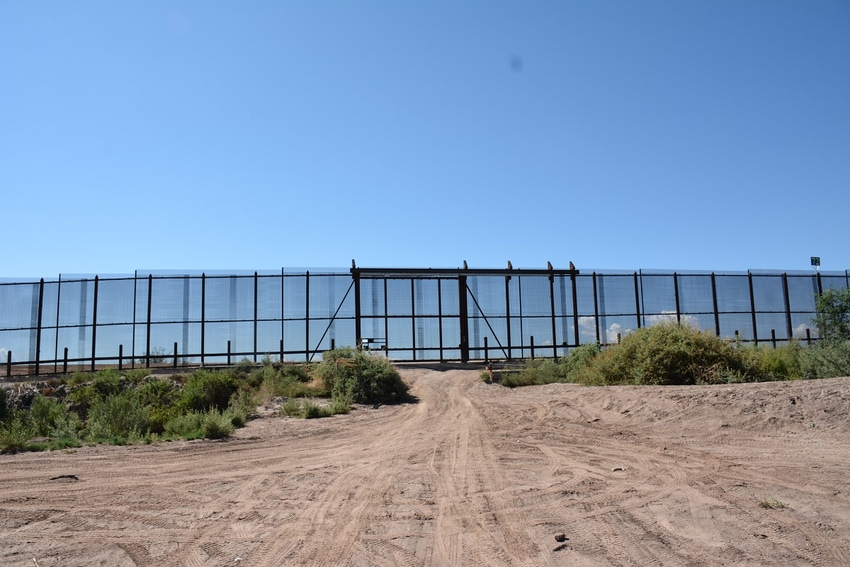
Nearly three and half months after his inauguration, President Trump has signed an executive order targeting agricultural issues that seems to indicate major concerns facing the industry may finally be addressed by the White House in the near future.
The hope comes after an executive order signed Tuesday creates an inter-agency task force charged with conducting research, gathering information and charged with preparing a report outlining recommendations for the President's consideration.
That executive order, titled “Promoting Agriculture and Rural Prosperity in America,” is tied closely to the Senate confirmation Tuesday of Sonny Perdue as Trump's Agriculture Secretary. The executive order was signed during Trump's meeting with Perdue and a panel of 14 farmers from across the country who had the opportunity to express their concerns for the industry.
Many of those concerns were prompted in recent months by the White House's aggressive stand on immigration policy and enforcement, a position that some farmers believe further threatens to complicate agriculture's ability to attract and retain immigrant farm workers and broader issues related to farm worker programs.
TRADE ISSUES
In addition, trade concerns have become an issue after Trump's opposition to the Trans-Pacific partnership trade deal (TPP) and his expressed intent to renegotiate terms of the North American Free Trade Agreement (NAFTA), plus his commitment to force Mexico to pay for the construction of a border wall.
Mexican officials have promised to take their own aggressive stand in opposition to the President's plans to introduce a border tax policy that would restrict trade between the two nations. They have also been actively seeking alternative trade partners to provide corn and soybeans and other agricultural products that could seriously affect U.S. farmers and their ability to move commodities across the southern border.
Perdue's confirmation and the executive order related to agriculture has the support and endorsement of several farm support groups who have expressed hope that serious concerns like trade and immigration will be addressed by the Trump administration in the near future.
According to Ray Starling, special assistant to the President for agriculture, the executive order will require the task force, led by Secretary of Agriculture Sonny Perdue, to produce a report for the President in 180 days on the impediments to farming in the United States. Starling said the task force will be made up of White House and administration staff.
The willingness of the White House to meet with Perdue and a panel of farmers appears to be a positive sign that agriculture may finally be getting some attention in Washington. Combined with the signing of an executive order that creates a special task force gives reason for hope that concerns like trade and immigration will be addressed in the days and weeks ahead.
CONCERNS LINGER
But in spite of what seems to be a positive development, some farmers may still have justified concerns. While finally having an agriculture secretary to lead the USDA is certainly a positive development, a task force that will research issues like trade and immigration and make a report to the President by November is disheartening at best.
Just this week President Trump deferred pressing Mexico to pay for a border wall at least until later this year when the new fiscal year begins, but he has expressed his commitment to the wall project, saying "there will be a wall built," and Mexico will ultimately pay for it, a statement that immediately solicited a reply from Mexican officials who said "there is no scenario" in which Mexico will pay for the wall, an indication the saber rattling between the White House and Mexico City is far from over.
In addition, on the same day Perdue was confirmed as Agriculture Secretary, President Trump intensified a trade dispute with Canada, slapping tariffs of up to 24 percent on imported softwood lumber in a move that drew swift criticism from the Canadian government, which vowed to sue if needed. Canadian officials say the tariff violates terms of NAFTA and such a move could intensify trade issues with both Canada and Mexico, two of the United States strongest trade partners.
The move seems to escalate an economic disagreement among neighboring nations that normally have demonstrated one of the friendliest international trade relationships in history. Making the move even more serious is that it quickly follows a fight over a new Canadian milk policy that U.S. producers say violates the North American Free Trade Agreement, an obvious uptick in trade disagreements related to NAFTA.
While Perdue's appointment and a special task force to vet farm issues serves as a carrot to an industry worried about the President's lack of concern for agricultural policy to date, some fear a ramping up of policies that alienate the United States most loyal trade partners could end in serious problems for farm and ranch production in the years ahead. And deferring important issues like trade and immigration for a period of no less than six months represents an effort that falls short of what farmers had hoped to get concerning issues they say can affect their current farm year.
On the positive side, farmers and support groups are pleased the administration is looking at deregulating federal rules related to agriculture and seem generally pleased to have a new Secretary at the Helm at USDA. Trade and immigration issues, however, remain on the minds of most.
About the Author(s)
You May Also Like






